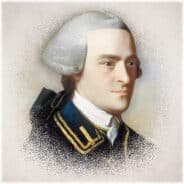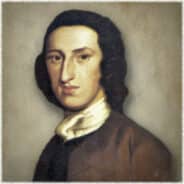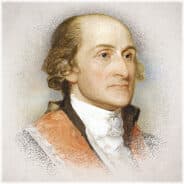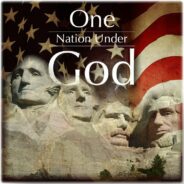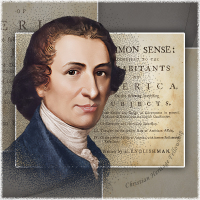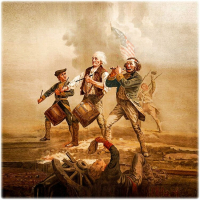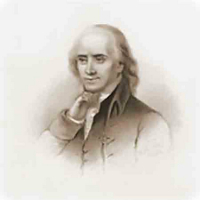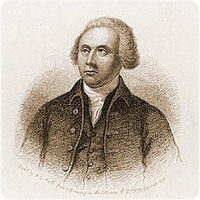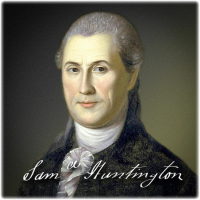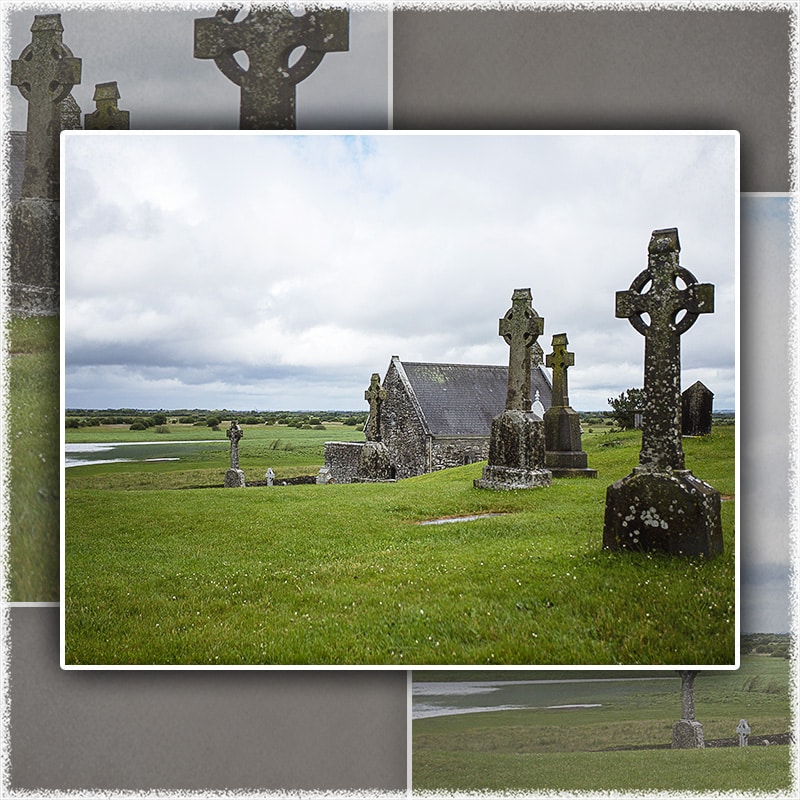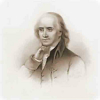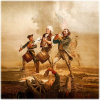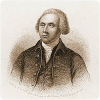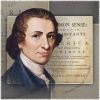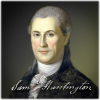March 16, 1776: Second Congressional Fasting Proclamation
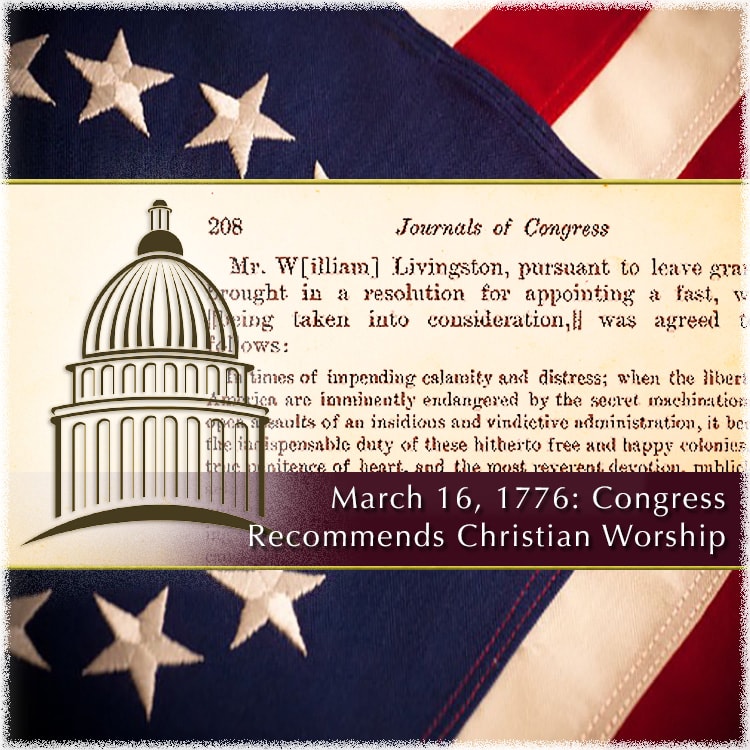
The Christian influence upon the formation of the Thirteen English colonies prior to the American Revolution, may be seen everywhere in the historical records of each colony. During and following the Revolution, America's Founding Fathers continued to influence the politics of their states and nation with their Christian faith. One of the clearest evidences of this fact is seen in the Christian spiritual proclamations Congress issued from June 1775 to August 1784—sixteen proclamations in all.Second Congressional Fasting Proclamation
These sixteen proclamations may be divided into two classifications. The first classification of proclamations issued by Congress included prayer and fasting proclamations. The second may be designated as thanksgiving. Of the sixteen spiritual proclamations issued by Congress, eight were issued to each of the two classifications, of which, the following proclamation is second among the prayer and fasting.Second Congressional Fasting Proclamation
The subject addressed in this article is discussed at greater length in When Congress Asked America to Fast, Pray, and Give Thanks to God. Christian Heritage Fellowship would be honored to work with individuals, businesses, churches, institutions, or organizations to help communicate the truth concerning the positive influence of the Christian faith by providing bulk pricing: Please contact us here... To purchase a limited quantity of this publication, please click: Purchase here...
Article Contents
Historical Setting of Proclamation
John Hancock was the son of Rev. John Hancock, pastor of the church at Braintree, Massachusetts. When John was a child, his father died, and John was adopted by his uncle, Thomas Hancock—a rich merchant from Boston. Completing his education at the Boston Latin School and Harvard, he returned to Boston to work with his Uncle. In 1764, his Uncle Thomas died and John, the one-time poor minister's orphan, found himself at the age of twenty-seven the head of Boston's leading mercantile house and chief heir to £70,000.[1] At the time America's War of Independence began, John Hancock was one of the wealthiest men in America.
During his first term as President of Congress, from May 24, 1775 to October 31, 1777, John Hancock presided over the passage of three Congressional proclamations related to fasting, prayer, and thanksgiving. The second of the three was passed by Congress in March of 1776, when Congress was busily tending to the business of war with Britain.
Congressional records suggest that the second fast proclamation was orchestrated by a very prominent figure in New Jersey politics. William Livingston was elected to serve with the New Jersey delegation to the First and Second Continental Congresses[2] and was the son of the merchant, Philip Livingston. After receiving his early education from local schools and tutors, William—at the age of fourteen—entered into missionary work when he went to live among the Iroquois Indians in the Mohawk Valley for a year with an Anglican missionary. In 1738, he enrolled in Yale College, graduating in 1741 before studying law in New York City. In October 1775, he was commissioned in the New Jersey Militia as a brigadier general. In August 1776, Livingston was elected as New Jersey's first Governor under the new state constitution; he occupied this office, being reelected each year, until his death in 1790. He was further distinguished by the fact that he served as a delegate from New Jersey to the Constitutional Convention in 1787.[3]
It may further be noted that William Livingston's oldest daughter, Sarah Van Brugh Livingston, married John Jay, the First Chief Justice of the United States. John Jay was a leading influence in the formation of the American Bible Society in 1816 and was a deeply dedicated evangelical Christian leader. Jay's role in the Continental Congress was significant as were his subsequent duties in the life of early America. Sarah accompanied her husband to Spain and later to Paris. While in Paris, John and Sarah Jay, and their children, resided with Benjamin Franklin at Passy.[4]
Livingston Composes Second Proclamation
William Livingston's interest and role in composition of the second congressional prayer proclamation was briefly noted in the Journals of Congress:
WEDNESDAY, MARCH 13, 1776
Mr. W[illiam] Livingston moved for leave to bring in a resolution for appointing a fast, which was granted.[5]
From what may be determined from this Journal entry, William Livingston assumed responsibility for the composition of the fast proclamation of March 1776. Given the fact that most proclamations were composed by a committee, it would have been an unusual step to delegate this effort to one man. The fact that he appears to have taken the initiative in the matter speaks highly of his own spiritual interests. Only three days after being charged with the task, Livingston submitted his proclamation to Congress as a whole for approval:
SATURDAY, MARCH 16, 1776
Mr. W[illiam] Livingston, pursuant to leave granted, brought in a resolution for appointing a fast, which being taken into consideration, was agreed to as follows:
In times of impending calamity and distress; when the liberties of America are imminently endangered by the secret machinations and open assaults of an insidious and vindictive administration, it becomes the indispensable duty of these hitherto free and happy colonies, with true penitence of heart, and the most reverent devotion, publicly to acknowledge the over ruling providence of God; to confess and deplore our offences against him; and to supplicate his interposition for averting the threatened danger, and prospering our strenuous efforts in the cause of freedom, virtue, and posterity.
The Congress, therefore, considering the warlike preparations of the British Ministry to subvert our invaluable rights and privileges, and to reduce us by fire and sword, by the savages of the wilderness, and our own domestics, to the most abject and ignominious bondage: Desirous, at the same time, to have people of all ranks and degrees duly impressed with a solemn sense of God's superintending providence, and of their duty, devoutly to rely, in all their lawful enterprises, on his aid and direction, Do earnestly recommend, that Friday, the Seventeenth day of May next, be observed by the said colonies as a day of humiliation, fasting, and prayer; that we may, with united hearts, confess and bewail our manifold sins and transgressions, and, by a sincere repentance and amendment of life, appease his righteous displeasure, and, through the merits and mediation of Jesus Christ, obtain his pardon and forgiveness; humbly imploring his assistance to frustrate the cruel purposes of our unnatural enemies; and by inclining their hearts to justice and benevolence, prevent the further effusion of kindred blood. But if, continuing deaf to the voice of reason and humanity, and inflexibly bent, on desolation and war, they constrain us to repel their hostile invasions by open resistance, that it may please the Lord of Hosts, the God of Armies, to animate our officers and soldiers with invincible fortitude, to guard and protect them in the day of battle, and to crown the continental arms, by sea and land, with victory and success: Earnestly beseeching him to bless our civil rulers, and the representatives of the people, in their several assemblies and conventions; to preserve and strengthen their union, to inspire them with an ardent, disinterested love of their country; to give wisdom and stability to their counsels; and direct them to the most efficacious measures for establishing the rights of America on the most honorable and permanent basis——That he would be graciously pleased to bless all his people in these colonies with health and plenty, and grant that a spirit of incorruptible patriotism, and of pure undefiled religion, may universally prevail; and this continent be speedily restored to the blessings of peace and liberty, and enabled to transmit them inviolate to the latest posterity. And it is recommended to Christians of all denominations, to assemble for public worship, and abstain from servile labour on the said day.
Resolved, That the foregoing resolve be published.
[Note 1: 1 Printed in the Pennsylvania Gazette, 20 March, 1776.] [6]
The remarkable influence accorded to Christianity by the Founding Fathers in the formation of America's federal government is appropriately summarized in the next to the last sentence of the proclamation: "And it is recommended to Christians of all denominations, to assemble for public worship, and abstain from servile labour on the said day."
Though most of the states had state churches, it is evident the newly forming federal government would make no attempt to deny the states the right to regulate their own state churches. Further, though Congress made no attempt to align itself with any particular Christian denomination, it did advocate Christian worship and asked that all "abstain from servile labour on the said day."
In light of the historical facts, Americans have the right to ask questions. Is it possible that law schools throughout America have so poorly educated their students that they have little or no knowledge of America's true Christian origin? And, does such ignorance make America's courts and its judges the advocates of a new agenda never endorsed by the Founding Fathers? What is more, why have pastors and churches been more aggressive in advocating the truth? For more than half a century, America's legal system has suffered at the hands of usurpers who are determined to destroy America's Christian heritage.
America deserves to know its true heritage.
Please contribute today!
[1] Dictionary of American Biography, s.v. "Hancock, John."
[2] Livingston served in the Continental Congresses from July 1774 to June 1776. Journals of the Continental Congress, 2:11.
[3] Dictionary of American Biography, s.v. "Livingston, William."; "William Livingston," Wikipedia, August 28, 2017; https://en.wikipedia.org/wiki/William_Livingston.
[4] "John Jay," Wikipedia, August 28, 2017; https://en.wikipedia.org/wiki/John_Jay.
[5] Journals of the Continental Congress, 4:201.
[6] Journals of the Continental Congress, 4:208-209.

